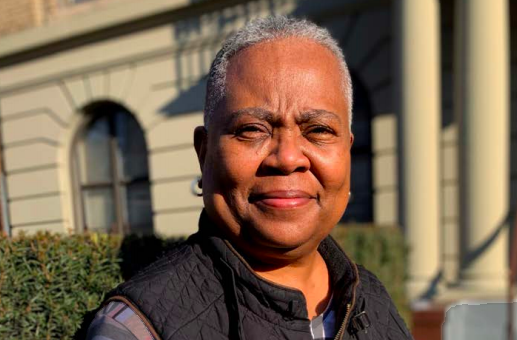A Senior Companion Keeps The Connection During COVID
By Henry Street Settlement

Our 2020 annual report is out now and we are sharing the featured stories of strength and resilience. Read more about Patricia below, or in our annual report now.
Patricia Storey fell in love with working with seniors while caring for her great aunt Dorothy who lived in a Manhattan nursing home. Every time Patricia came to visit her aunt, she made more friends, especially with those who didn’t have families.
So, about six years ago when Patricia had some time on her hands, her long-time friend Lela Charney, a retired Henry Street social worker, encouraged her to join the Settlement’s Senior Companion Program.
The program is a national model in which active seniors are matched with frail older adults to provide company and help with tasks of daily living, such as shopping and making medical appointments. After a training period, the companions work from 5 to 40 hours a week and may be eligible to earn a small stipend. The support system helps the older partners to stay in their homes for as long as they can.
Patricia, who took her own godchildren to the Henry Street sleepaway camp, Echo Hill, in the 1980s, has had multiple clients. One was a man with end-stage Alzheimer’s disease; another a man whom she pushed in his wheelchair to dialysis appointments. In both cases, she became close with the client’s entire family.
“When we were young, my mom volunteered at all community things; she was the classroom mom, on the board at my schools. That’s where my love for volunteering came in,” Patricia says.
When the pandemic struck, Patricia had been assisting two older clients including Gloria, a homebound 94-year-old with macular degeneration. Early on, Patricia realized that Gloria had little food in her kitchen; one of her first tasks was to set up a grocery delivery account for her. Now she and Gloria turn on their televisions at the same time, and Patricia explains what’s happening if there is something Gloria can’t see or hear.
“I love this job because it gives me a purpose to get up and get out every morning, and know I’m going out to serve.” Patricia says. “Plus, I learn from them; they fascinate me and keep me going,”
The mother of two adult sons, Patricia radiates optimism and joy. COVID-19, she says, has made her more grateful for the things she has and for her family. When she was asked recently if she could take on a third client—a women who lives in a transitional housing facility, she didn’t blink. “My hope for the future is that I can go back to serving in person,” she says.
